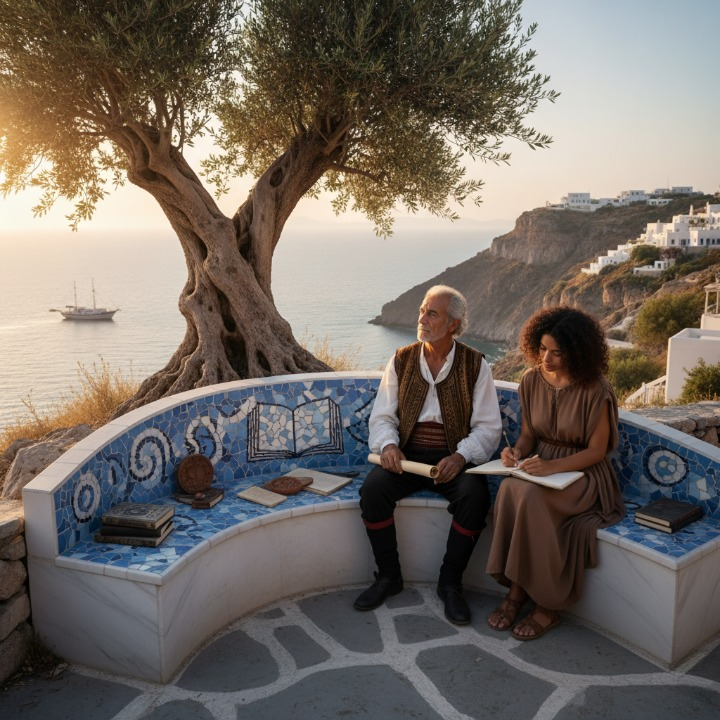Exploring the Interplay Between Tradition and Thought in India’s Cultural Heartland
Lucknow – Uttar Pradesh, India’s cultural epicenter, is a vibrant tapestry of regional traditions that deeply shape its philosophical outlook. From the spiritual essence of Varanasi to the syncretic ethos of Awadh, the state’s regional cultures intertwine with its philosophical heritage, influencing societal values and thought processes. This interplay continues to guide individual and collective behavior, reflecting how traditions evolve to remain relevant in contemporary contexts.
Key Metrics
- Population Diversity: With over 200 million residents, Uttar Pradesh is the most populous state in India, home to diverse religious and cultural communities. Hindus constitute 79.73%, Muslims 19.26%, and others include Sikhs, Christians, Buddhists, and Jains (Census 2011).
- Tourism and Pilgrimage: In 2022, Uttar Pradesh recorded over 535 million domestic and 5 million foreign visitors, making it a hub for cultural and spiritual tourism (Uttar Pradesh Tourism Department).
- Cultural Events: Festivals like the Kumbh Mela draw millions, with the 2019 Prayagraj Kumbh alone hosting over 24 crore attendees, showcasing the region’s philosophical and spiritual appeal.
Regional Cultural Influences on Philosophy
1. Varanasi: The Eternal City of Spiritual Thought
Varanasi, revered as the spiritual heart of India, is synonymous with introspection and liberation.
- Advaita Vedanta Influence: The philosophy of non-dualism, propagated by Adi Shankaracharya, is ingrained in the city’s rituals and teachings, emphasizing the unity of the self and the divine.
- Bhakti Traditions: Saints like Kabir and Tulsidas left a lasting impact through their devotional philosophies, promoting equality and devotion over orthodoxy.
- Modern Relevance: Varanasi remains a center for spiritual tourism, with events like Dev Deepawali blending ancient traditions with contemporary expressions.
2. Mathura and Vrindavan: Devotional Epicenters
As the birthplace of Lord Krishna, Mathura and Vrindavan exemplify the philosophy of rasa (aesthetic emotion) and devotional love.
- Philosophical Roots: Teachings from the Bhagavad Gita inspire ethics, mindfulness, and a sense of duty, deeply influencing the region’s cultural fabric.
- Cultural Celebrations: Festivals like Janmashtami and Holi are not just rituals but embody Krishna’s teachings on joy, equality, and the triumph of good over evil.
3. Awadh: A Blend of Elegance and Syncretism
The Awadh region, known for its Nawabi culture, is a confluence of Hindu-Muslim traditions, fostering a philosophy of harmony and inclusivity.
- Ganga-Jamuni Tehzeeb: This cultural ethos reflects interfaith dialogue and communal coexistence, forming the backbone of Awadh’s social philosophy.
- Philosophical Contributions: Poetry, art, and dance forms like Kathak from Awadh highlight themes of beauty, grace, and human connection.
4. Bundelkhand: Philosophies of Resilience
Bundelkhand’s rugged landscape and folk traditions echo themes of perseverance and valor.
- Cultural Reflection: Oral epics and folklore celebrate human endurance, blending morality with lessons of environmental stewardship.
Philosophical Expressions in Cultural Practices
1. Festivals as Living Philosophies
Festivals in Uttar Pradesh are deeply philosophical, reinforcing moral and ethical values.
- Kumbh Mela: Represents the quest for purity and spiritual enlightenment, drawing millions to Prayagraj.
- Holi and Diwali: Celebrate the triumph of good over evil and the unity of humanity.
2. Pilgrimage and Rituals
Sites like Ayodhya, Sarnath, and Mathura attract spiritual seekers, offering spaces to reflect on life’s purpose and the pursuit of liberation.
- Modern Integration: Government initiatives like Namami Gange aim to preserve the sacredness of these sites while addressing contemporary environmental challenges.
Challenges to Sustaining Regional Philosophies
- Over-Commercialization: Festivals and pilgrimage sites risk losing their philosophical depth due to increasing commercialization.
- Generational Disconnect: Many young people perceive traditional practices as outdated, leading to a dilution of cultural and philosophical knowledge.
- Religious Polarization: Socio-political tensions often overshadow the inclusive and syncretic traditions that define Uttar Pradesh’s heritage.
Preserving and Revitalizing Philosophical Traditions
1. Education and Awareness
- Introduce regional philosophies and teachings of saints like Kabir, Tulsidas, and Sufi mystics into school curricula to instill cultural pride and awareness.
2. Community Engagement
- Promote interfaith dialogues and events that celebrate shared cultural and philosophical values.
3. Sustainable Tourism
- Balance cultural preservation with tourism by focusing on authentic experiences and eco-friendly practices.
4. Digital Documentation
- Leverage technology to archive oral traditions, folk songs, and rituals, ensuring their accessibility for future generations.
Conclusion
Uttar Pradesh’s regional cultures are living embodiments of timeless philosophical beliefs that guide its people. From Varanasi’s spiritual wisdom to Mathura’s devotional fervor and Awadh’s syncretic harmony, the state is a microcosm of India’s diverse heritage.
As the state evolves, preserving and adapting these regional philosophies to contemporary contexts is essential for maintaining its identity. In doing so, Uttar Pradesh can continue to inspire both its residents and the world with its profound blend of tradition and thought.


Leave a Reply